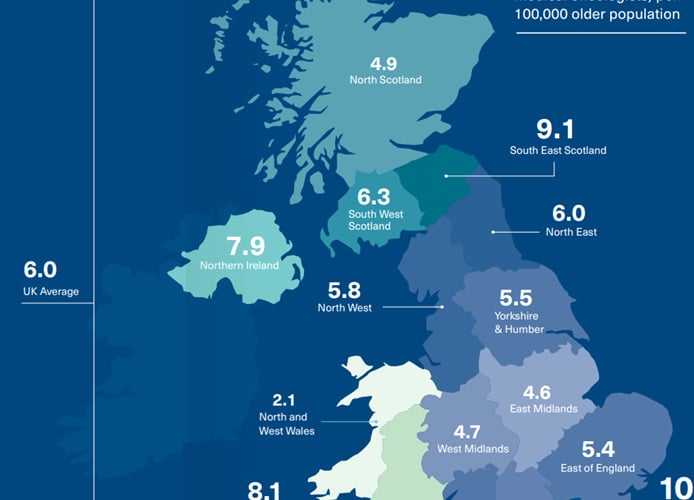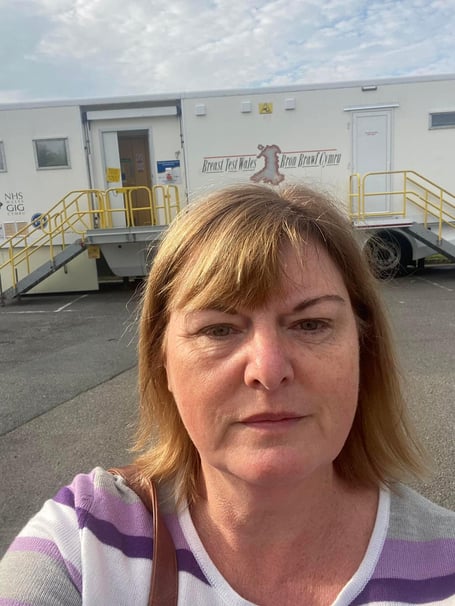A campaign has been launched to tackle cancer care waiting times in rural Wales after a Lampeter woman spoke of her 100-day wait for treatment for breast cancer.
Stark new figures have revealed that north and west Wales have the lowest number of cancer doctors in the UK, with Llyr Gruffydd MS describing the situation as alarming.
Macmillan Cancer Support has launched a new campaign, What Are We Waiting For?, calling out inaction from governments on cancer care.
Macmillan’s latest analysis has found that an additional 180,000 people in the UK – equivalent to the entire population of Carmarthenshire – have waited ‘too long’ for vital tests to diagnose cancer and to start treatment over the past decade because of missed targets.
For some forms of cancer, the figures are even worse. Only a third of people with gynaecological cancer (32.8 per cent) received their treatment within the 62-day target timeframe.
Julie Grabham (pictured) from Lampeter was diagnosed with breast cancer in 2022 and waited well over 100 days for treatment to begin.
She said: “The reality is that cancer knocks you over, then the current cancer care system just doesn’t give you a chance to get your feet back under you.
“I’ve had constant panic and anxiety from one appointment to the next, and felt I lost a lot of control – not only to my cancer diagnosis, but to a cancer care system that is confusing, disjointed and which often fails to treat you as a person.
“Every stage was draining. Delayed test results needed chasing. Delayed diary dates for the next appointment needed chasing. There were cancelled consultations, or consultations where the wrong people turned up at the wrong time to talk to me about the wrong procedure. There were hours of driving from rural west Wales and braving hospital parking only to find out the appointment wasn’t what you thought it would be or needed.
“The problem is that everyone is just so lovely, so fantastic – but those dedicated nurses and doctors just don’t seem to be supported to do their job by the system itself.”
Data from the Royal College of Radiologists’ 2022 workforce census shows that in north and west Wales, there are just 2.1 oncologists (medical and clinical) per 100,000 older people. This compares with 8.1 in south Wales.

Forecast retirement rates for oncologists are very high in Wales, with one in four expected to retire in the next five years. This rises to nearly one in two in the next 10 years.
Plaid Cymru MS Mr Gruffydd, recently challenged First Minister Mark Drakeford on the issue on the floor of the Senedd, saying: “We know that the Welsh Government has set a target for cancer diagnosis and treatment to be undertaken within 62 days for 80 per cent of the population by 2026.
“It currently stands at just over a half. So, my question to you, First Minister, is how on earth do you expect to achieve this target in light of these of these alarming figures around oncology staffing levels in Wales?”
The First Minister claimed it would achieve its target through the “investment that we are making in the cancer workforce of the future”.
Macmillan’s new campaign is now urging politicians to take urgent action to address this critical situation, highlighting that waiting times targets can be met if hospital trusts and health boards across the UK have the right resources.
Specifically, the charity is urging governments to prioritise investment in the number of healthcare professionals who care for cancer patients.




